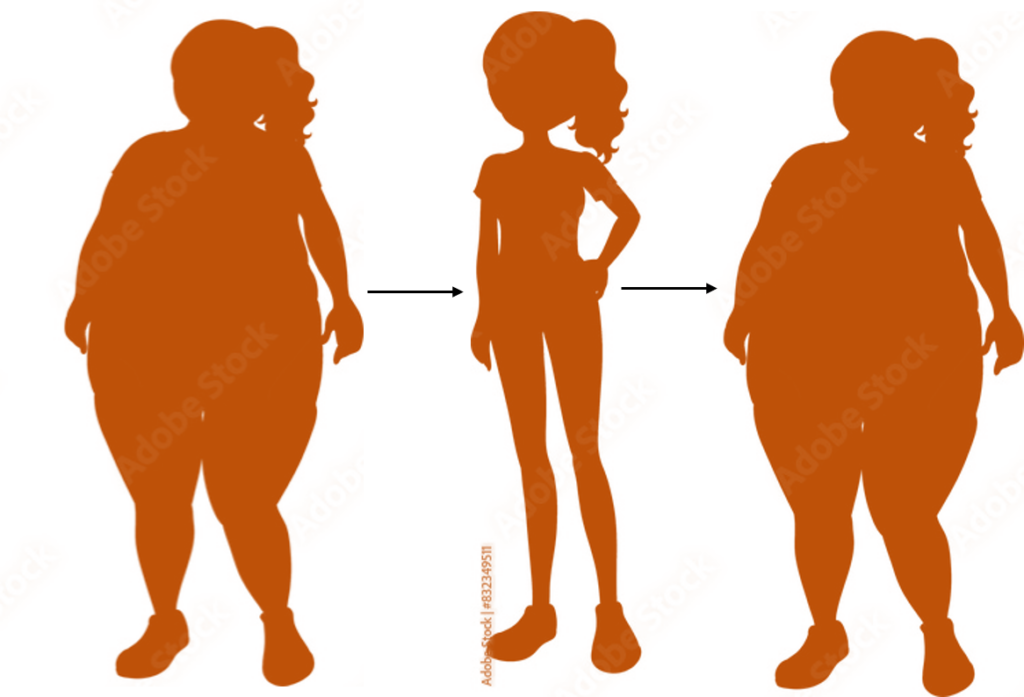I bet all of you have observed that you gain weight quickly after a weight loss when you stop dieting or exercising. A group of scientists from Switzerland have recently found molecular evidence of this phenomenon. In a recent research article published in Nature, they found similar epigenetic signatures on fat cells (adipocytes) during obesity and after weight loss in both humans and mice, indicating they retained a memory of being fat. Epigenetics are reversible gene changes that alter their expression without changing the genetic code. They observed distinct sets of genes retain these signatures which contribute to the pathology of obesity such as adipocyte function, inflammation, and fibrosis.

Human study
They performed a single nucleus RNA-seq on adipose tissue from healthy and obese individuals before and 2 years after weight loss surgery to find gene expression patterns. They had a small sample size of 5-8 people from three different cohorts and included individuals who lost at least 25% BMI. They found that transcriptional changes were most pronounced in adipocytes, antigen-presenting cells, and endothelial cells. These cells retained those changes even after 2 years of surgery with the strongest retention observed in adipocytes. Pathway analysis of these genes in adipocytes revealed adipocyte metabolism and function being most downregulated; fibrosis and apoptosis being upregulated. It is surprising to see that even after significant weight loss, obesity induces cellular and molecular changes in adipocytes that are not altered and potentially responsible for the rebound obesity.
Mice study
- Gene expression changes
6-week-old male mice were fed a high-fat diet (60% kcal from fat) or low-fat chow diet (10% kcal from fat) for 12 or 25 weeks followed by 8 weeks of standard chow diet to induce weight loss. Single nucleus RNA sequencing revealed gene changes similar to the human study. Metabolic pathways were downregulated and inflammatory and extracellular matrix remodelling pathways were upregulated in adipocytes of mice that were on a high-fat diet and even after weight loss.
2. Epigenetic changes
To uncover the underlying mechanisms for these gene expression changes, the group performed ATAC-seq and four histone modifications CUT&Tag (cleavage under targets and tagmentation), namely H3K27me3 (repress mark), H3K4me3 (active mark), H3K1me1 (active or poised mark), and H3K27ac (active mark). The cluster analysis grouped weight loss samples closer to high-fat diet samples than to controls, indicating that weight loss did not completely normalize the adipocyte epigenome. Similar to RNA-seq, promoters of adipocyte function-related genes were repressed, and inflammatory and extracellular matrix remodelling genes were activated in obese and weight-loss mice as compared to the control.
3. Weight gain after weight loss
Finally, to investigate whether these mice regained weight more quickly than control mice, they were again fed on a high-fat diet for 4 weeks. Indeed, the weight loss mice gained faster weight than controls. The previous epigenetic signature could explain 31% of upregulated genes related to inflammation and 60% of downregulated genes related to adipocyte function and identity in the mice group that showed accelerated gained weight.
Limitations
- The epigenetic signature was not performed in human adipocyte cells to compare it with mice data. This is mainly due to a lack of methods for isolating adipocyte nuclei from frozen human tissue.
- The study does not provide a direct causal relationship between epigenetic memory and accelerated weight gain effect.
Future directions
- It would be interesting to find whether other cell types also retain the epigenetic memory contributing to the rebound weight gain.
- It has been observed that individuals gain weight after the withdrawal of weight-loss drugs such as semaglutide or tirzepatide. Thus, it is crucial to find whether the epigenetic memory is preserved in these conditions or not. Similarly, the effects of exercise should be investigated.
- Find new drugs or therapeutic strategies that can erase these epigenetic markers and improve weight loss.
Vinny Negi, Ph.D.
Disclaimer
The editors take care to share authentic information. In case of any discrepancies please write to newsletter@medness.org
The sponsors do not have any influence on the nature or kind of the news/analysis reported in MedNess. The views and opinions expressed in this article are those of the authors and do not necessarily reflect the official policy or position of MedNess. Examples of analysis performed within this article are only examples. They should not be utilized in real-world analytic products as they are based only on very limited and dated open-source information. Assumptions made within the analysis are not reflective of the position of anyone volunteering or working for MedNess. This blog is strictly for news and information. It does not provide medical advice, diagnosis or treatment nor investment suggestions. This content is not intended to be a substitute for professional medical advice, diagnosis, or treatment. Always seek the advice of your physician or another qualified health provider with any questions you may have regarding a medical condition. Never disregard professional medical advice or delay in seeking it because of something you have read on this website.
MedNess is a part of STEMPeers® which is a 501(c)(3) organization registered in PA as PhD Career Support Group. The organization helps create a growing network of STEM scientists that is involved in peer-to-peer mentoring and support.



